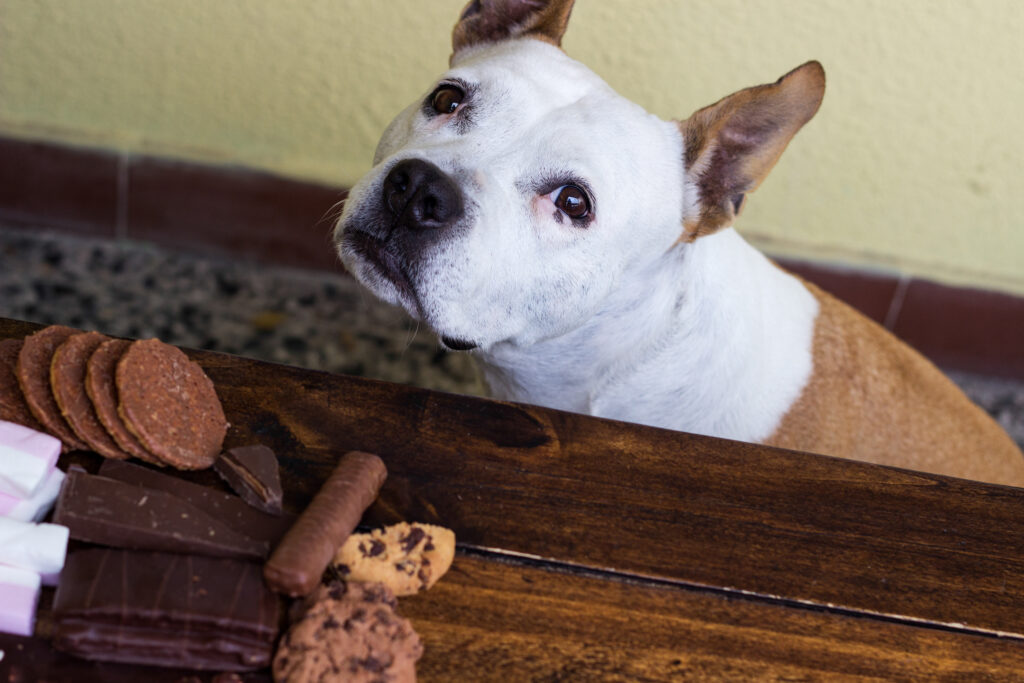At first glance, it might seem arbitrary that March is designated Pet Poison Prevention Month, but it’s actually the perfect time to raise awareness. We just finished one of the most chocolate-centric holidays of the year (thanks, Valentines, Day!), and we’re heading toward Easter. Not only that, but the spring season is just about to pop with seasonal color, along with plenty of opportunities for accidental pet poisonings.
With a little bit of diligence, we can avoid pet toxins and work toward enjoying the season together!
Always Good to be Prepared
Some pets find trouble more often than not, while others are more lucky. Whatever the case may be for your four-legged friend, it’s always a great idea to be prepared for any eventuality. When it comes to poisonous substances for animals, the more pet owners know about the symptoms caused by potential threats, there’s a better chance for a positive outcome.
That’s…Odd
Poisons work really quickly in the delicate systems of our dear pets. As a result, the moment you see a tell-tale symptom, it’s go-time. Please do not delay in seeking emergency services for your pet. Waiting for an odd behavior to resolve itself may have disastrous results.
Do not ignore:
- Excessive pawing at the mouth
- Drooling
- Staggering gait or collapse
- Labored breathing
- Vomiting and/or diarrhea
- Accelerated heart beat
- Muscle tremors or shaking
- Seizures
- Pale gums
- Increased drinking and urination
What Could It Be?
Pet poison prevention hinges on keeping any of the following toxic items or ingredients off the floor:
- Poisonous Foods – Xylitol-sweetened gums or candies, chocolate, alcohol, caffeine, raisins/grapes, macadamia nuts, and onions/chives/garlic can cause dangerous side effects.
- Medicine – Many OTC and prescription drugs should never be accessible to pets. Tylenol, ibuprofen, cold/allergy medications, antidepressants, asthma inhalers, and more present certain risks. Also, label your pet’s medicines and keep them out of reach.
- Household products – Cleaning supplies are meant to keep our places sparkling, but can create hazardous symptoms in pets if ingested, absorbed by the skin, or inhaled. Be sure that all surfaces are dry before your pet has access to them.
- Essential Oils – Known to promote health and well being in people, essential oil products can be very harmful to pets. Always talk to us before introducing these into your home, and don’t encourage your pet to hang out beneath diffusers.
The Smellies & Pet Poison Prevention
For all their beauty, numerous plants and flowers can be poisonous to our pets. Even if you have pet-friendly plants inside the home and within landscaping beds outside, accidental exposure isn’t uncommon. Conduct a sweep of your pet’s indoor and outdoor environments to be certain they are free of toxic plants and blooms.
Furthermore, yard and garden products are notorious threats to pet poison prevention. Never allow your pet access to:
- Fertilizer
- Pesticides
- Insecticides
- Bone and blood meal
- Cocoa mulch
- Rodenticides
- Snail bait
The More You Know
The more you know about the risks of pet emergencies and can recognize the dangerous symptoms of poisoning, the faster you can seek help for your pet. Please let us know if you have other questions or concerns. Clairmont Animal Hospital is always here for you!


